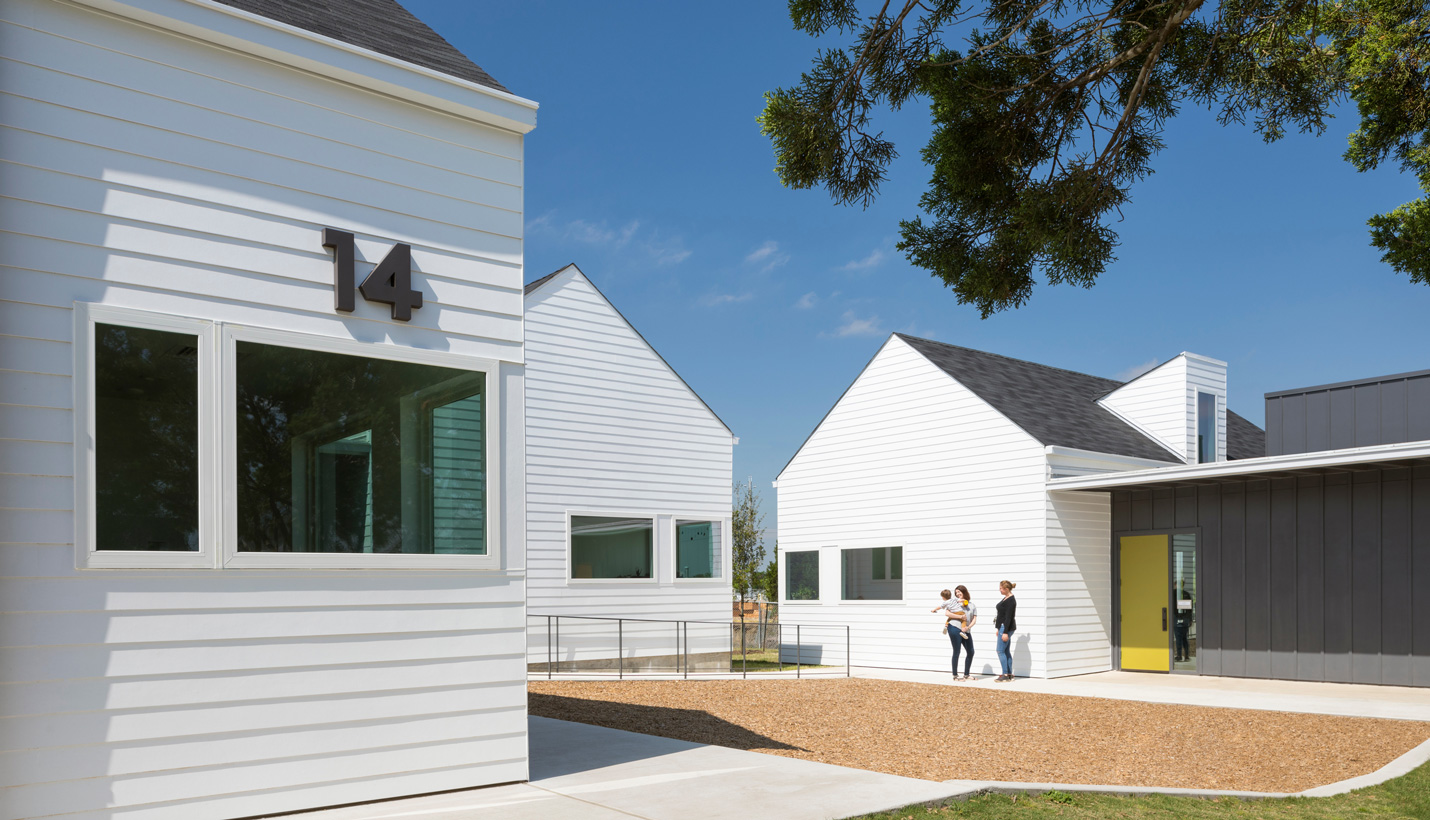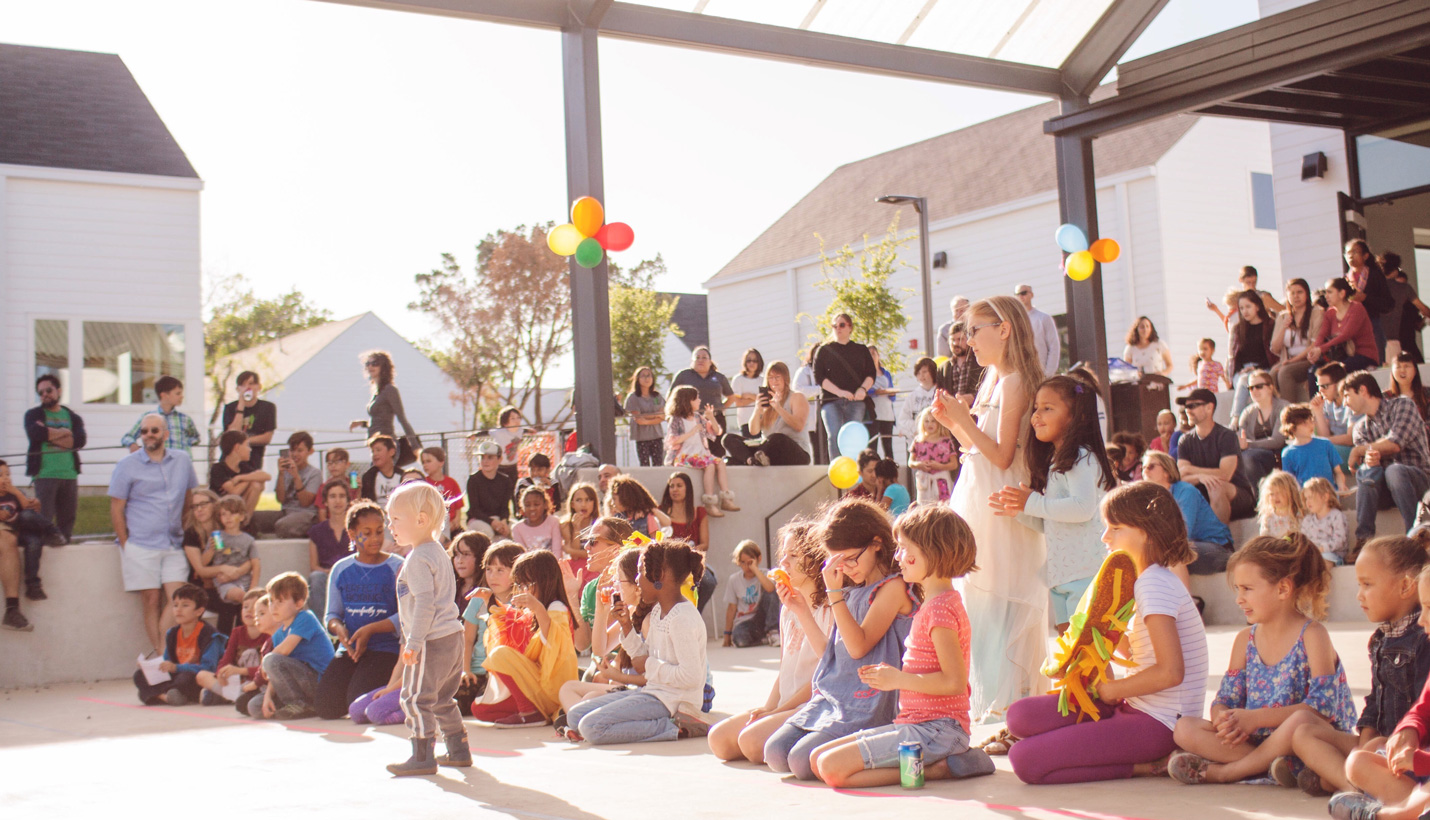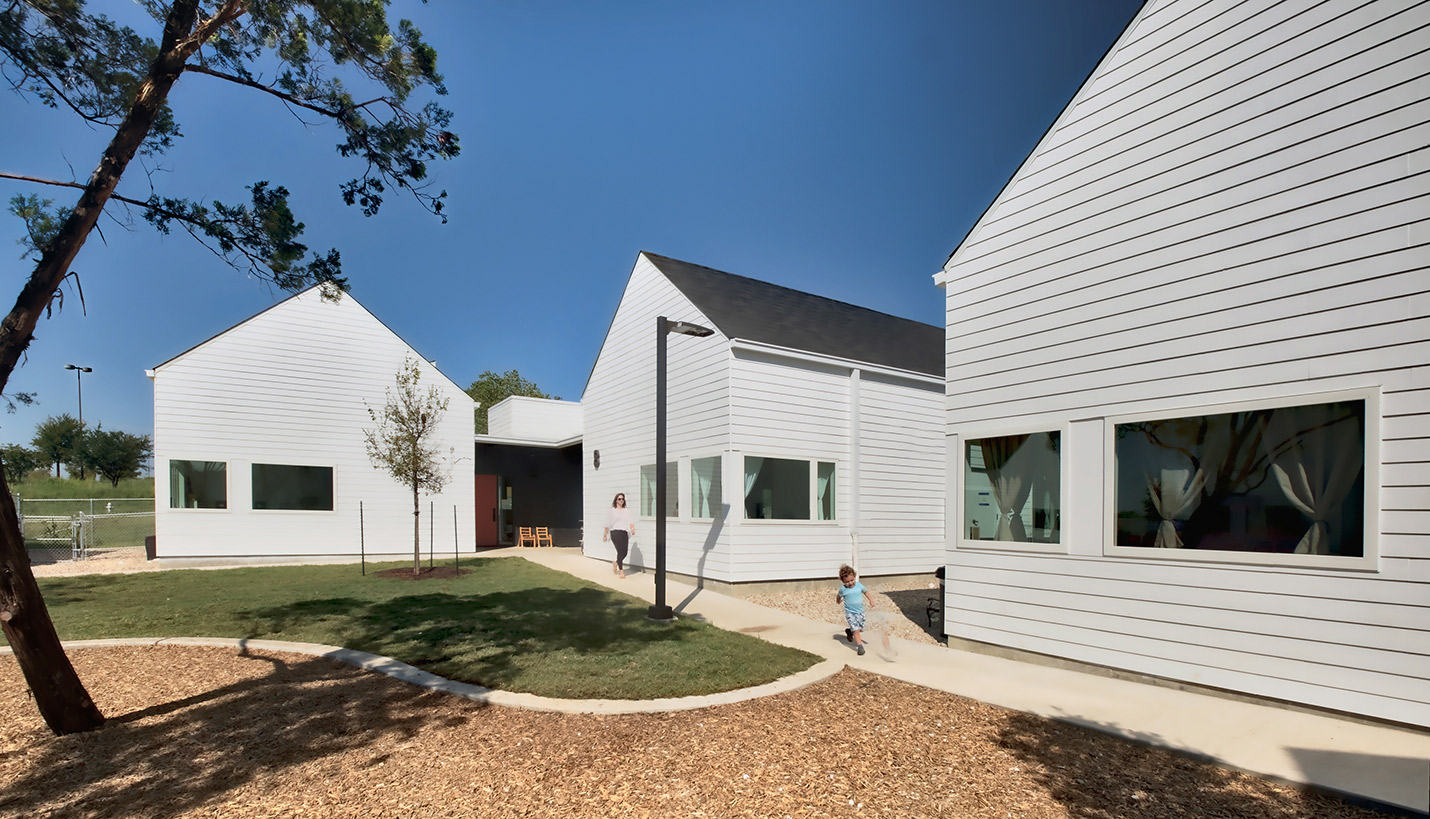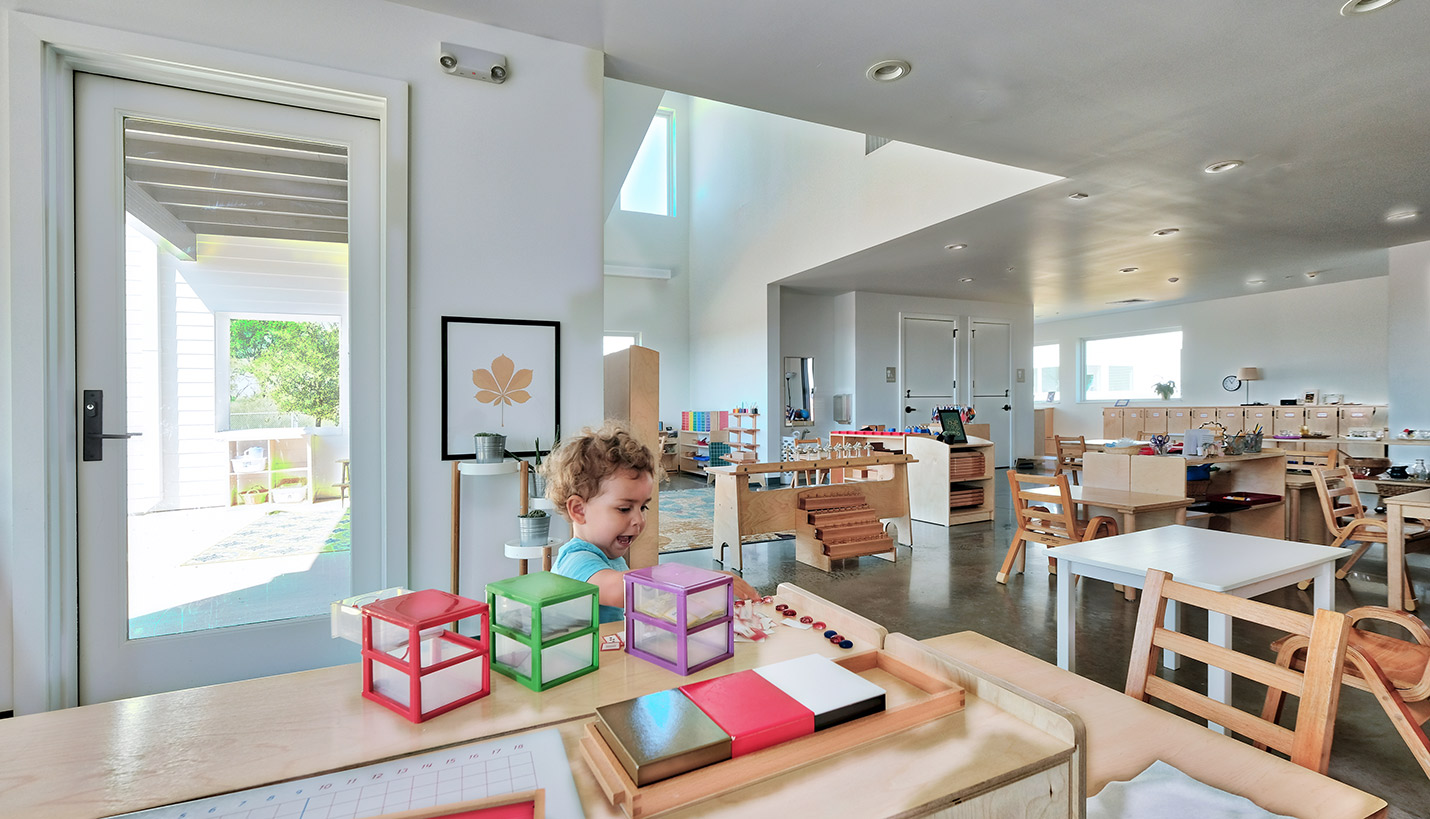Elevating Education Through Design
Magnolia Montessori For All provides students of all backgrounds with a supportive learning community committed to helping each child achieve his or her potential. The architecture supports the institution’s mission and the campus design is receiving accolades from the American Institute of Architects.
The project has received 2019 Design Awards from AIA Austin and the Texas Society of Architects. It is also the recipient of a 2019 Committee on Architecture for Education's 2019 Education Facility Design Awards of Excellence from AIA National and was recognized with a Community Impact Award from the Austin Business Journal. Juries across the board are recognizing the role the design plays in supporting Magnolia Montessori For All’s mission to bring high-quality education to its community.
Located in an underserved community in East Austin, Magnolia Montessori For All has a population of 500 students, ranging in age from infants to 6th grade. Instead of an imposing civic building, our team designed a village of crisp cottage-like buildings that dot a gently sloping site. The campus has become beloved by all its users, and the administration is quick to note how the architecture supports large and small goals on a daily basis.
Sarah Cotner, Founder and CEO of Magnolia Montessori For All, described the drivers of the design and how it benefits her staff, students and the larger community:
“Montessori educates the ‘whole child’ and cultivates creativity, innovation and leadership skills. Children need these qualities to be successful in the future. Helping them develop self-direction, independence, collaboration, critical thinking means changing what they are doing at school, day-in and day-out. If you want to change what the children are doing, you have to change what the space looks like.
Instead of looking like an institution, our school looks like a village. Each classroom looks like a house, and no two are alike. At any given time, there are children working outside in the garden; children peeling and serving carrots to their peers; children working on math or reading lessons; children playing musical instruments or taking care of the class pet. All of this activity happens at the same time, and the classrooms facilitate this. The ability to choose what to do and when fosters students’ independence, self-reliance, creativity and a sense of community.
When we opened Montessori For All in 2014, there were more than 20 Montessori schools in Austin, but they were all private. We are a public school, so we accept all children. We intentionally created a racially, culturally and socioeconomically diverse community. We have observed that when you change the programming and the architecture, you change people. We participated in a national study that measures different outcomes, and our school is at the top of the cohort related to persistence, sense of belonging, cultural competence and resiliency—all of which are important for creating leaders of the future.”
05/14/2019
People
Related Posts
- Impacting Our Local Communities
- Making Montessori Education More Accessible For All
- Unique Montessori Campus Recognized with National Design Award
- Architect Magazine: Making Montessori Education More Accessible For All
- Disasters—and Bad Architecture—Can Affect Human Happiness and Productivity
- Nurturing Creative, Independent and Resilient Learners
- Converting Lessons Into Awards













